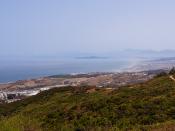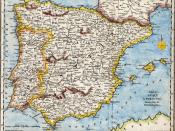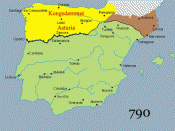SPAIN is a land of sun and passion, art and nature, culture and tradition.
With an approximate population of 40 million, Spain has a constitutional monarchy. The current president of Spain is Jose Luis Rodriguez Zapatero of the P.S.O.E. (Spanish Socialist Workers Party). He took over from José Maria Aznar of the Popular Party in the election of March 2004, just after the Madrid bombings. Jose Luis is 43 years old. His grandfather was Captain Juan Rodriguez Lozano of the Republican army who was executed by a firing squad of Franco's troops at the beginning of the civil war. Jose Luis studied law and graduated from the University of Leon in 1982 after which he became a teacher of political law. At 18 he was elected secretary general of the Young Socialists of Leon. At 22 he became the leader of that group in the capital. At 26 he became the youngest deputy in Spain and at 28 he became secretary general for Leon.
Spain covers 504,750 square kilometers of the Iberian Peninsula, flanked by Portugal. Its fertile soil, wealth of underground minerals, abundance of fish in the seas have all contributed over the centuries to making this land a sought after place for many civilizations.
Origins
Man started living here in 800,000 BC. The first inhabitants were groups of hunters, followed many years later by tribes of sheep farmers and, around 5000 BC, by agricultural farmers. Later colonizers arrived bringing their own cultures with them. The first to land on Spanish shores were the Phoenicians, around 1100 BC, finding prosperous settlements particularly along the south-east coastline. The Greeks were next settling along the north-east coast, and in 228 BC the Carthaginians began a surge of conquests in Andalucia.
Romans
The Roman conquest of the peninsula began in 218 BC,


